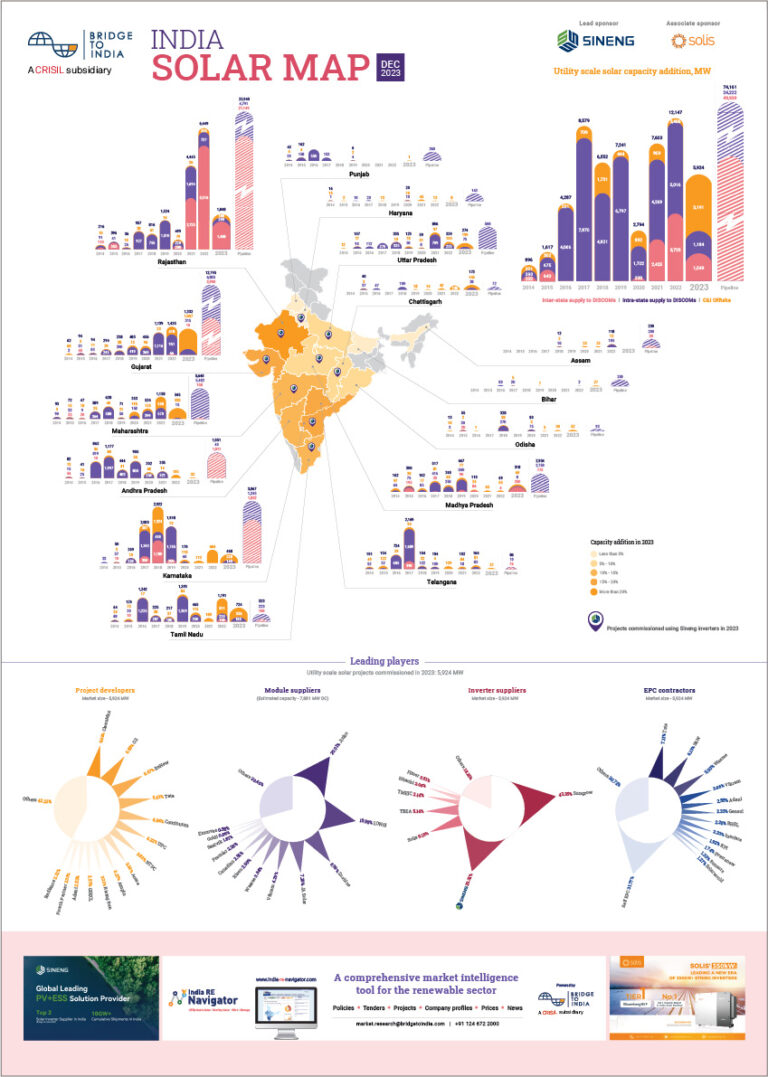India’s central electricity regulator, CERC, has proposed implementation of a new power scheduling and despatch system titled, Market-Based Economic Despatch (MBED), from 1 April 2022 onwards. MBED requires DISCOMs and conventional power producers to submit buy and sell bids respectively on day-ahead basis on power exchanges rather than scheduling power directly between themselves based on their contracted PPAs. The first phase would be applicable to all DISCOMs but only to NTPC as a power producer.
- MBED aims to bring down power procurement cost for DISCOMs by instituting a national level merit order despatch;
- Routing all transactions through exchanges would bring sorely needed market discipline to both power producers and purchasers;
- It would be crucial to get DISCOMs and state governments on board for effective, time bound implementation;
In effect, MBED is akin to merit order despatch at a national level rather than at state level as at present with the added feature of market trading. The primary rationale is to utilise the cheapest power available and reduce cost for DISCOMs. Where the DISCOMs have already signed PPAs, they would effectively purchase power at the lower of agreed variable rate and market price. Fixed charges for contracted capacity would be paid separately to power producers. CERC has estimated that MBED would reduce overall system cost by 11% and total DISCOM power procurement cost by 7%.
The market trading part is extremely beneficial for two reasons. First, it would improve trading market depth, currently only about 6% of total power volumes, and provide much needed pricing transparency in the sector. True price discovery based on demand-supply, prevailing costs and other operating parameters would send critical market signals to investors, financiers, system operators and policy makers besides facilitating growth in power derivatives and risk management tools. The second major benefit would be timely payment by DISCOMs, who would be required to clear payments to power producers on the day of delivery as against a normal delay of 3-6 months.
There are multiple other benefits. Routing all transactions through exchanges would bring sorely needed market discipline to both power producers and purchasers. Power producers would be incentivised under the new regime to optimise operations and reduce cost. They would also be able to sell any unscheduled capacity in the real-time market (RTM) – DISCOMs would lose the right to this capacity in return for 50% share of profit from sale of power to other consumers. Growth in RTM volumes would provide further impetus to power trading. MBED is also likely to reduce curtailment risk for renewable power as DISCOMs get more flexibility in scheduling conventional power.
So, what’s the catch? DISCOMs would need more financial resources for trading margin and timely payments to power producers. The government is proposing to provide liquidity to them through new funding lines from PFC and REC. But the DISCOMs and state governments could still oppose the new system on grounds of higher funding costs and loss of state autonomy. Thermal IPPs with untied capacities and/ or those with higher costs would also stand to lose because of greater competition particularly in RTM trading. Moreover, increase in inter-state power flows may be constrained by transmission capacity.
MBED is by far the most important proposed reform in the power sector for a very long time. If implemented effectively and in a time bound manner, it would mark a major step towards liberalisation of the Indian power sector and making it more market oriented.












